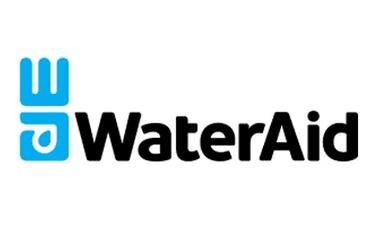WaterAid dismissed two employees last year after safeguarding investigations but was encouraged by an increase in concerns raised, according to newly published documents.
The international development charity’s annual report and accounts for 2022–23 suggest there continued to be some underreporting of safeguarding incidents.
Its global safeguarding team received reports of 28 safeguarding concerns from across its federation,up from 27 the year before, 20 of which related to WaterAid UK directly.
The charity resolved seven cases following an initial safeguarding review and 21 cases led to a safeguarding investigation.
One case related to organisational misconduct by a staff member and two incidents of physical abuse against WaterAid volunteers, were reported to the Charity Commission, “who were satisfied with our investigations and recommendations”.
The report shows 12 cases were found to be unsubstantiated or unfounded due to insufficient evidence and no reports were found to be malicious.
Two staff members were dismissed and one member of the charity’s contractor staff received a written warning.
“The number of cases reported this year is higher than the previous year and we believe this is a positive reflection of increased confidence to report,” its accounts read.
“However, given the scale of our operations and partnerships, and the challenging contexts in which we work, we recognise there is likely to be a degree of underreporting.”
Staff costs
During the year, there was an increase in staff costs of 8.2% per full time equivalent employee.
The average monthly headcount was 906 staff (2022: 897) while the total number of WaterAid employees at 31 March 2023 was 909 (2022: 912).
WaterAid paid termination payments totalling £206,000, the majority relating to the closure of programmes in the Kingdom of Eswatini, Myanmar and Sierra Leone.
It paid its chief executive Tim Wainwright total employee benefits of £134,067 (2022: £128,048) and pension contributions of £14,035 (2022: £13,526).
In last year’s global employee engagement survey, of 1,178 staff responders, 91% would recommend WaterAid as a good place to work and 95% felt proud to work there, the report states.
Income and expenditure
Total income at WaterAid in the year to March 2023 increased by 3% to £94.5m, driven by increased income from legacy gifts, fundraising events and grant funding for specific activities.
The accounts state this offset the drop in donations from individual givers, major donors and trusts “that were all negatively affected by uncertainty in the economic environment”.
Unrestricted grant income from other members also fell due to changes in government and their approach to international aid, the accounts add.
It received £3m through the People’s Postcode Lottery.
WaterAid’s total expenditure increased by 14% to £96.4m on the previous year, leading to a slight decline in its operational reserves.
Fundraising complaints
During 2022–23, the charity made 4,734,961 contacts using email, mail, telephone and SMS.
It received 146 complaints about its fundraising, which were 78% of all complaints received.
The key causes were direct mail (58%), television advertising (14%) and online activity (14%).
WaterAid’s report says that influencing change on a larger scale is an increasingly important aspect of its approach.
“We work at the local, national and international levels, empowering communities and civil society organisations to call on decision-makers to prioritise investments in clean water, decent toilets and good hygiene.
“By maintaining strong relationships with governments and other key sector actors, we can use our learning and evidence to influence policies, practices and resource allocation.”
Related Articles












